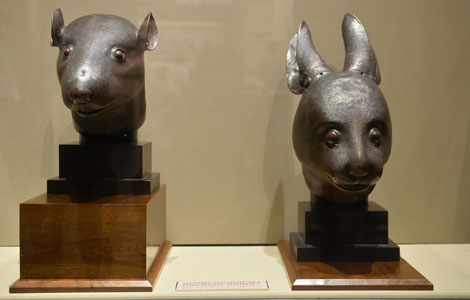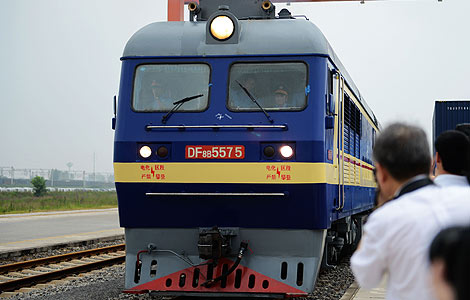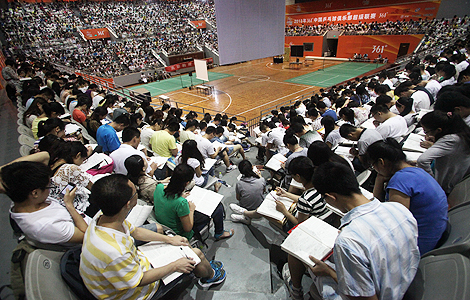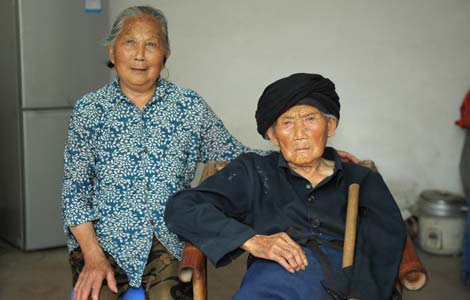

|
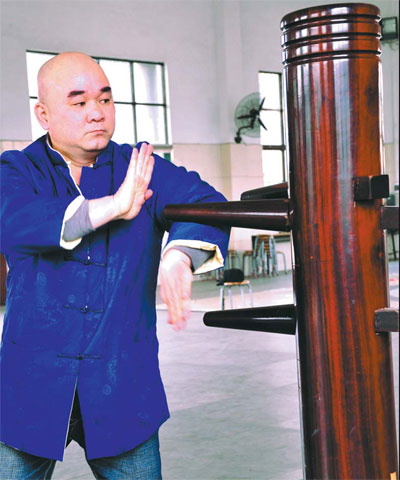 Wu Guojian, a Wing Chun master with Foshan Pengnan Wing Chun Association, one of the largest of its kind in the city that promotes the Wing Chun style of martial arts, practices kungfu. [Photos by Li Ruiru / For China Daily] |
Lun Zhixiong likes to have a cup of tea as he chats with practitioners of kungfu. Sometimes he communicates not just with words but also through the stylistic body language of martial arts.
|
||||
Lun, now in his 50s, started learning Wing Chun in his childhood and, along with many others, set up martial arts clubs in the city, but it's a bittersweet endeavor. While the popularity of martial arts has soared, few clubs make a profit. Can commercialism turn that around?
Foshan now has 200 clubs devoted to martial arts, their appeal boosted largely by a series of movies based on the life of Yip Man, a Wing Chun master born in the late 19th century. The first movie was released in 2008; two others came out last year.
More than 20 Wing Chun clubs have been set up in Foshan since 2008, bringing the total to 87, according to Xue Mianben, president of Foshan Martial Arts Association.
Despite the increasing popularity of Wing Chun, and kungfu as a whole, a martial arts club turns out not to be a good revenue generator.
|
 Wu Guojian (above and below), a Wing Chun master with Foshan Pengnan Wing Chun Association, one of the largest of its kind in the city that promotes the Wing Chun style of martial arts. [Photos by Li Ruiru / For China Daily] |
"It will be very impressive if we can make ends meet with the little earning we get from training," said Wu Guojian, a Wing Chun master with Foshan Pengnan Wing Chun Association, one of the largest Wing Chun clubs in the city.
The club has held summer camps for the past four years, training about 1,000 learners, and it has 150 members who practice Wing Chun regularly and pay about 800 yuan ($122) a year for training. However, the routine expenses of electricity, water and masters' salaries render the training fees far less than needed to produce a profit.
"We have to pay out of our own pockets sometimes when we go out for contests or martial arts shows," Wu said. Running a club "is not for money, but interest".
Wu's club received financial support from He Liubo, a fellow Wing Chun disciple who runs a gas station. He invested 180 million yuan to build the club in 2007. Most of the clubs in Foshan don't have such sponsors.
Some owners of martial arts clubs in the city have their own businesses that feed the club, as Lun put it. He operates a plant nursery.
These men, who wear business suits in daytime and kungfu shirts at night for practice, don't expect the clubs to be what they cash in on. Overseas clubs, however, have developed in a completely different way.
